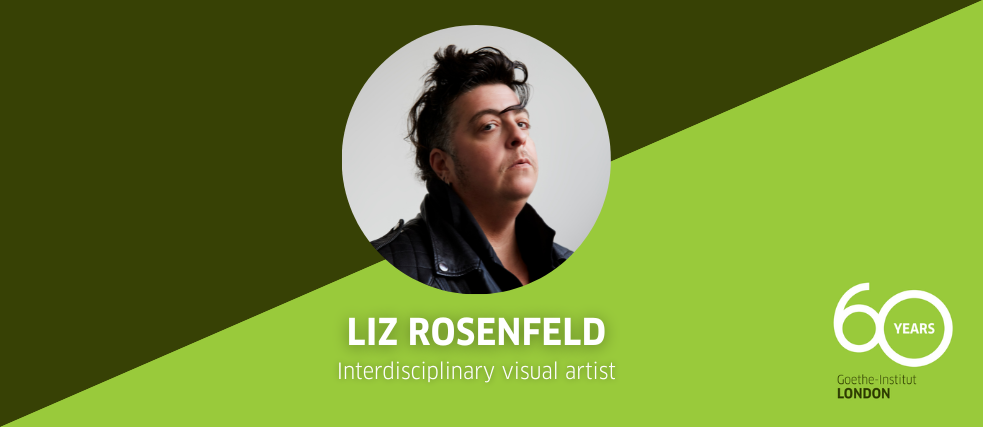November 2022
Liz Rosenfeld

I am Liz Rosenfeld, an interdisciplinary visual artist, filmmaker, performer, and writer who is based in Berlin.
In 2017 I was the inaugural Goethe@LUX Moving Image Artist in Residence. In my work, I explore the sustainability of emotional and political ecologies, cruising methodologies, the potential of holes, as well as, past and future histories related to the ways in which memory is queered. I approach flesh as a non-binary collaborative material, specifically focusing on the potentiality of physical abundance and excess, approaching questions regarding the responsibility and privilege of taking up space. My writing practice is rooted in questions that contend with how queer ontologies are rooted in variant hypocritical desire(s) and cruising histories.
There are so many wonderful memories of my time serving as the Goethe@LUX Moving Image Artist in Residence, it is hard to choose just one. There is one particular memory that I often share with people. One evening, when I held a screening of my short films, The Surface Tension Trilogy, I remember the audience was a lovely mix of my extended community of queer artists in London and the general audience who attend Goethe-Institut London events. After the final film showed, as the audience applauded, a man enthusiastically yelled "Das ist Kunst!"
Generally, my most fond memories of my time as an artist in residence were being supported by both The Goethe-Institut London and LUX Moving image to create spaces where audiences who may never have the opportunity to come together otherwise, could meet, share art, and discuss. To be able to create a myriad of spaces in which to exchange over the course of my residency was a priceless experience.
This period in which I lived and worked in London, was one of the most inspiring and productive periods I have ever had in my artistic career, as it was the first time I was granted space and time to stop and think about where my work was landing and how I approached process, collaboration and care within my artistic process.
As an artist who has had a long-standing and deep relationship with an artistic queer community in both Berlin and London, I took full advantage of the opportunity to bring my collaborators from Berlin to meet, present and exchange with my collaborators in London. To have this kind of support to not only go deep into my own practice but be able to highlight and incorporate the most important parts of it, such as my collaborative practices, was one of the most important and useful ways I utilized cultural exchange during my residency at the Goethe-Institut London. This kind of cultural and artistic exchange is a vital part of artistic practice, as meeting, connecting and discussing work and the process is an essential aspect of how artists continue to grow in their careers and visions.
My only response to " how can this evolve?" is that I hope these kinds of programs and opportunities do not fade away, as cultural exchange between creative minds is vital to artistic propositions and insight into future making.